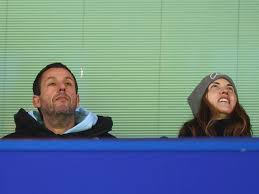Sara Sharif case review begins after father and stepmother ...

The Old Bailey, where the trial of Sara Sharif's killers, was held
 Loading ...
Loading ...After a 10-week trial, a jury found Urfan Sharif, 42, and Beinash Batool, 30, guilty of murder, and Sara’s uncle, Faisal Malik, 29, guilty of causing or allowing her death.
Sara’s body was found at the family home in Woking, Surrey, on 10 August 2023, after Sharif called police to admit to having killed Sara, having fled to Pakistan with Batool, Malik and five of Sara’s siblings.
100 injuries on child’s body
Surrey Police said specialist doctors and pathologists found evidence of around 100 separate internal and external injuries on Sara’s body, including a traumatic brain injury, multiple broken bones, extensive bruising and scarring.

Sara Sharif (credit: Surrey Police)
There was also evidence of burns, including one on Sara’s buttocks, which had been intentionally inflicted using a domestic iron, and human bite marks.
The BBC has reported that the family were known to Surrey council from 2010, before Sara was born. This was due to concerns about violence towards the children and domestic abuse perpetrated by Sharif towards Sara’s mother, Olga Sharif, before they separated.
Services’ involvement with the family will now be considered through a local child safeguarding practice review.
‘Perpetrators went to extreme lengths to conceal truth’
Following the trial verdict Surrey council’s executive director for children, families and lifelong learning, Rachael Wardell, said: “Sara’s death is incredibly distressing and we share in the profound horror at the terrible details that have emerged during the trial.”
“The focus of the trial has been on the evidence needed to secure the convictions of those responsible for Sara’s death,” she added.
“This means that until the independent safeguarding review concludes, a complete picture cannot be understood or commented upon. What is clear from the evidence we’ve heard in court is that the perpetrators went to extreme lengths to conceal the truth from everyone.”
Wardell said the council would “play a full and active part in the forthcoming review”, a point echoed by Surrey Police, for whom detective chief superintendent Mark Chapman said: “The murder of a child is shocking, but the injuries, abuse and neglect that Sara suffered during her short life has made this case particularly disturbing.”
‘Profound weaknesses in child protection system’
Children’s Commissioner for England Rachel de Souza said that Sara’s murder was “a heartbreaking reminder of the profound weaknesses in our child protection system that, as a country, we have failed time and time again to correct”.
On the back of the case, de Souza made three proposals for reform that are already in the government’s plans:
- Making schools the fourth statutory partner – alongside the police, health and local authorities – in local safeguarding arrangements.
- Improving oversight of children education at home – as Sara was before her death – through a register of children not in school and requiring councils to sign off on home educating requests for vulnerable children. (Under the government’s plans, council consent would be required when the child were subject to a child protection enquiry or on a child protection plan.)
- Giving each child a unique identifier to improve information sharing and stop them falling through gaps in support and protection.
De Souza also called for the defence of reasonable punishment, which permits parents to smack their children in England to be removed, something the government is also reportedly considering (source: BBC).


 United Kingdom
United Kingdom Argentina
Argentina  Australia
Australia  Austria
Austria  Brazil
Brazil  Canada
Canada  Germany
Germany  Ireland
Ireland  Italy
Italy  Malaysia
Malaysia  Mexico
Mexico  New Zealand
New Zealand  Poland
Poland  South Africa
South Africa  United States
United States 



























